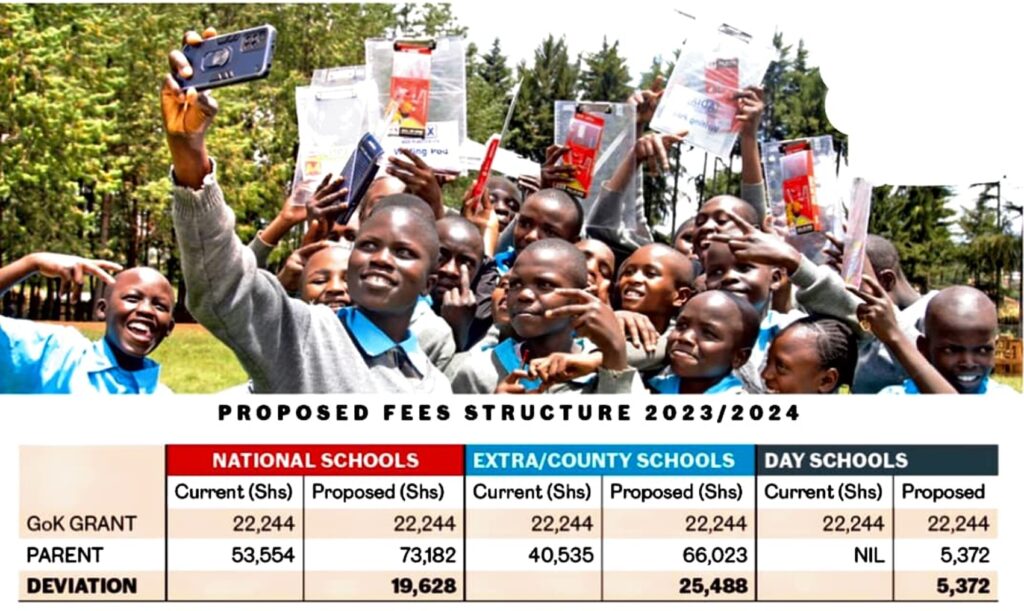Impact of Proposed School Fee Changes on Education in Kenya – 2024 Update
Proposed School Fees 2024.In 2024, Kenya’s education landscape is undergoing significant changes, particularly regarding school fees. This article delves into the implications of the proposed fee adjustments and their potential impact on the education system.
The Push for Fee Increases
One major development is the push for fee increases, largely led by secondary school principals. Facing challenges such as delayed government funding and rising living costs, they have proposed raising school fees across the board. This proposal could signify a turning point, as parents of students in free day schools may need to contribute for the first time in 15 years.
Fee Adjustments by School Category
The Kenya Secondary Schools Heads Association (Kessha) recommends varying fee adjustments. County and extra county schools may experience the most significant increase, with annual fees potentially rising from Sh40,535 to Sh66,023, a substantial leap of Sh25,488. National schools may also see their fees increase by Sh19,628, potentially reaching Sh73,182 from Sh53,554.
Addressing Inadequate Fees
The rationale behind these proposed fee increases is to rectify the inadequacy of current fees, which has hindered school operations and infrastructure development. Moreover, university students might face changes in their tuition fees, deviating from earlier promises of full government funding for economically vulnerable students.
The Potential Impact
While these changes may restrict free education to primary and junior school segments, they do not recommend an increase in government capitation, despite past pleas from principals. This has contributed to schools struggling with rising teaching material and meal costs, creating operational complications.
Proposed School Fees 2024
The Path Forward
The future of free secondary education in Kenya remains uncertain, with these proposals sparking discussions about the financial sustainability of the education system and support for students. The situation is complex, and some stakeholders have pointed fingers at the National Treasury for funding shortfalls, with additional requests, such as altering the textbooks policy and allowing schools to manage uniforms.
In conclusion, 2024 presents a pivotal moment for education in Kenya. The proposed fee adjustments, while contentious, are an attempt to address financial challenges faced by schools and students alike. The outcomes of these proposals will significantly shape the educational landscape in the years to come.




